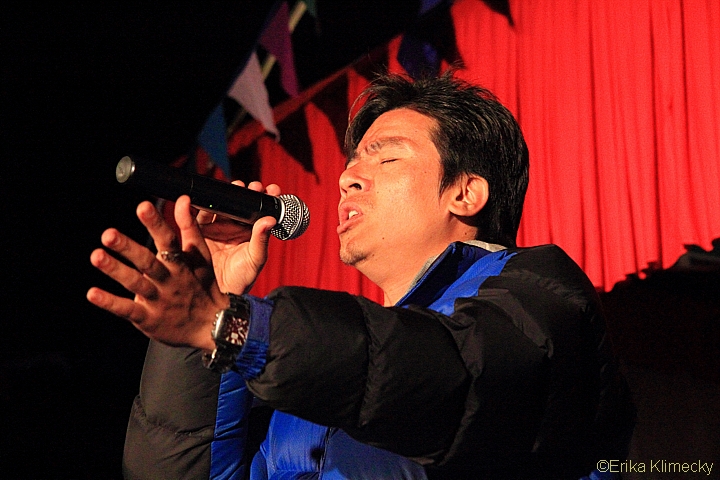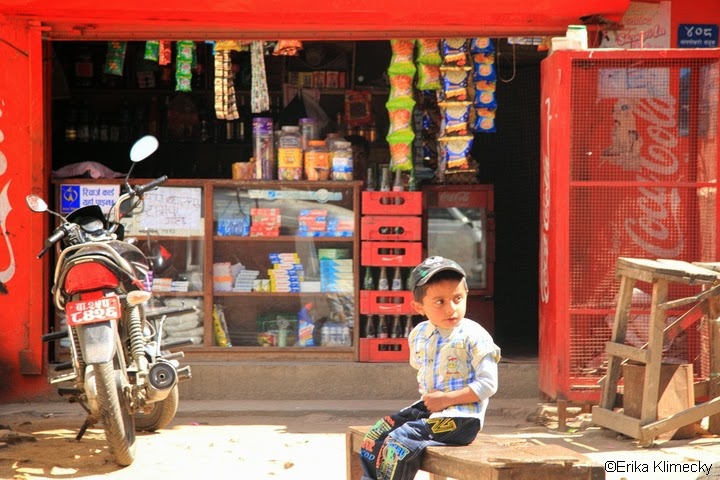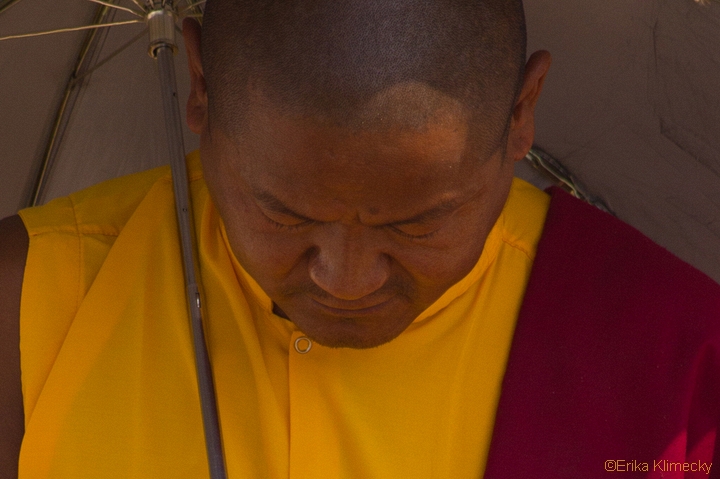This is a long one with a moral. Grab a cup of tea and get comfy. A story that didn’t make it into the book:
Off the Everest Highway, away from the tourists and the more “primped” towns that are on display for all (still nothing near Waikiki) there is noticeably more trash along the roads, in the streams, well, everywhere. It’s clear to me that this country is in a state of change, between adopting Western practices and utilizing their own traditional means. I never did get used to the trash and the way it collected in waterways and ditches.
While sitting next to an airstrip awaiting incoming flights, I chatted with a nurse from an NGO. She spelled it out plainly, and for the first time I totally understood why there seems to be so much trash. “Traditionally, they eat a potato or an orange and the peel goes on the ground, to be turned in and used to fertilize the next planting. There is no harm in dropping a banana peel or even a chicken bone on the dirt road because it degrades and benefits the land it came from. But our Western culture has imposed plastic wrappers and cellophane covering everything, and tin cans and water bottles.” And now it lives in high villages of Nepal, where there is no garbage truck, no system or service in place to routinely remove the waste that it creates. I took pictures of some of the most disturbing images I found, but have resisted showing any of them. I am not sure that’s my place.
One day our group was out along the road waiting for things to happen. One of the younger Sherpa assistants on the trek who I’d gotten to know pretty well was standing above the road on a stone wall. He reached into his pocket and pulled out a snack, then tossed the wrapper down into the muddy ditch along with 2 dozen others of the same. Without thinking, my knee-jerk, mommy reaction blurted out, “Oh, no-no! Pick that up!” Exactly like I would say if my own kid did such a thing here.
But I was not here, I was in Nepal. John and Clint had been talking with me in a close triangle and John abruptly stopped, grabbed my wrist and chided me for yelling at him. “No, no… it’s not our place.. no, no Sis….” I felt terrible. I knew John was speaking from a place of cultural sensitivity, and I was intruding. I was completely out of place to bark like that. Not that they agreed with the action. They both spent the entire trip hauling used cigarette butts in their pockets until an acceptable rubbish can was found. Sometimes that was an entire day or more. So I wrestled internally with the issue of culture versus progress. Was it better to overstep and perhaps make a positive difference, or resist imposing more of my Western eye on the situation?
The offending trash-tosser climbed down the wall and approached the discarded wrapper, carefully considering it. It was mud-covered, yak dung-covered, certainly not anything you’d want to touch or carry around. But I got the desired result. He saw an outsider’s reaction and considered what he’d done. I expressed to John that this is all I wanted, that it was important to me, for this young Nepali to understand that he had another choice. And I think he did. But the guilty feeling of yelling at him, of stepping out of place and over cultural bounds really gnawed at my insides for a long time afterwards.
Today AC and I were talking about volunteer cleanups and trash removal in that very area of Nepal. He said to me, “I am so glad you yelled at that guy for throwing his trash…”
“Really?” I blurted, cutting him off, “because I felt really bad after I did that.”
Then AC went on to explain how the locals will have to be educated on trash collection, most likely from the youth upward, instead of the other way around. And I think he is right. He has plans to implement a repeating cleanup program for some villages in Solu. I think that’s a mission I can get behind, so I’d like to help. I can see myself standing in galoshes in the streams of Solu, picking out wrappers and broken bottles. And I can also see myself talking (not yelling) to the local youth about how they can make their home village more beautiful, in hopes that they will tell their elders.
I do believe that one person can make a difference, particularly when they are driven by the heart. But I think it also multiplies when the sentiment is taught, learned and spreads as a result of that one person. Let me know if you want to join me.




Tsk tsk tsk. Once a mom… 🙂
Cultural sensitivity is one thing, ignoring destructive actions is another. You are doing it right. Facilitating cultural change is tough. Especially for an outsider. Help the locals you want to help, but let them take point (as you are doing with AC) is the only workable way.